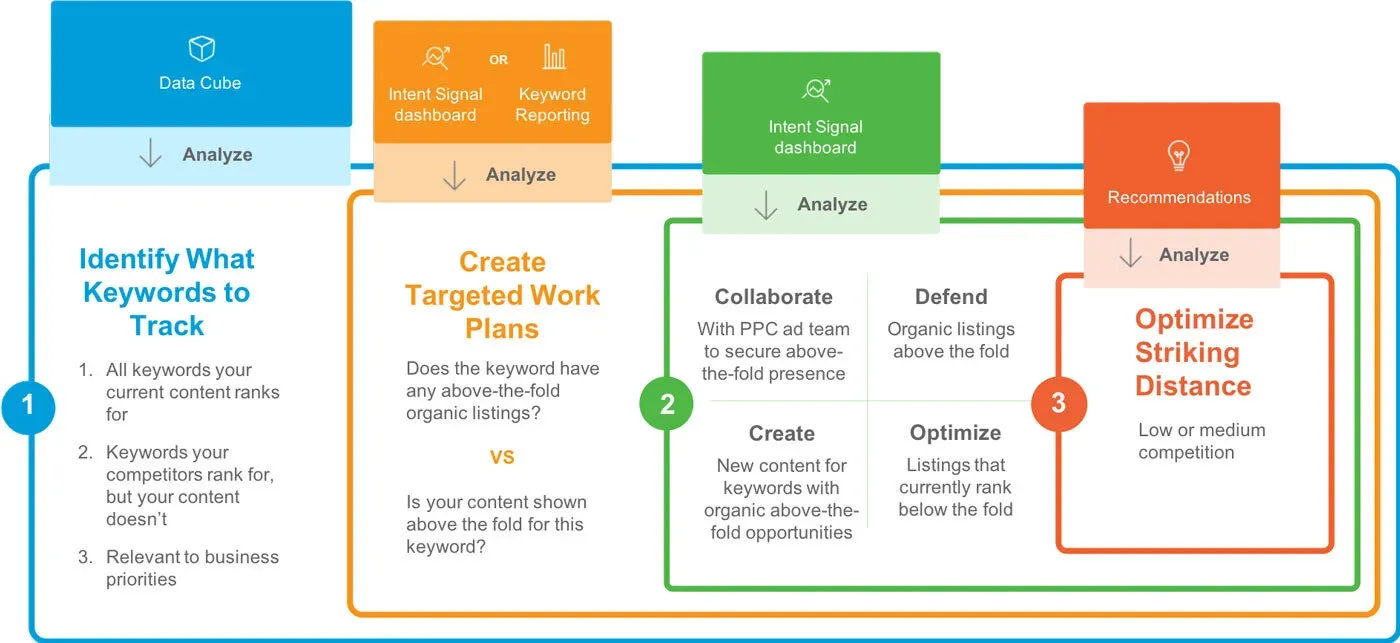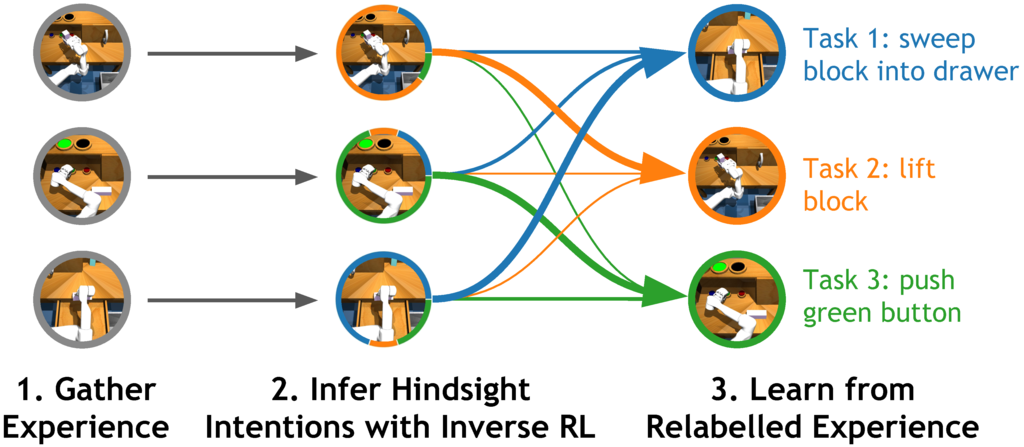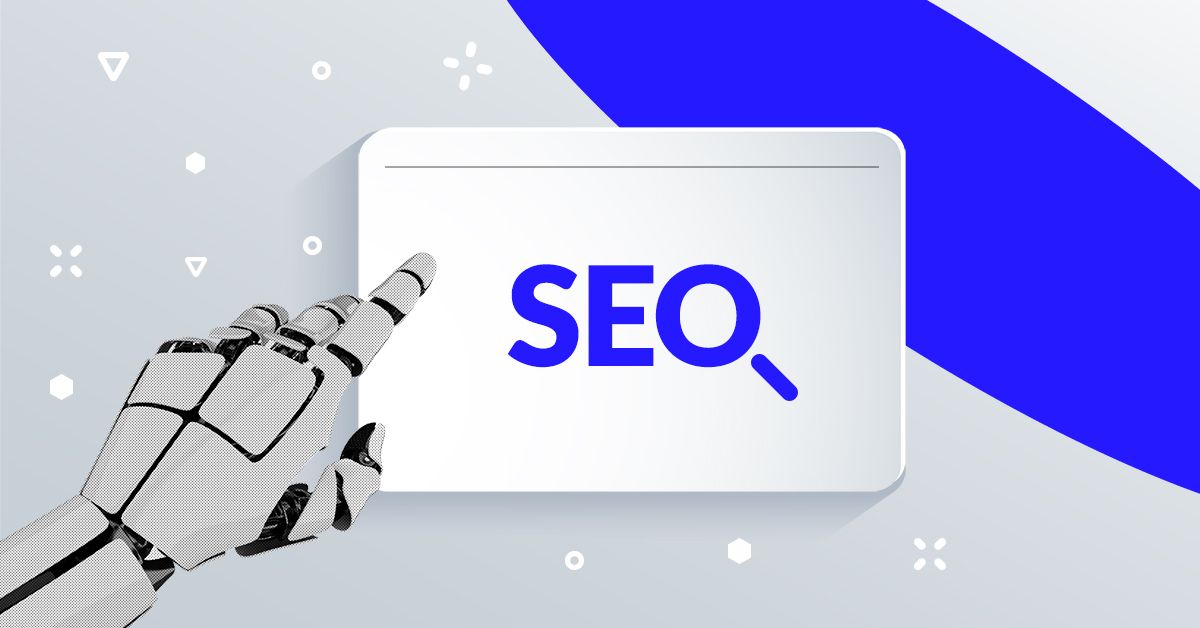In the ever-evolving world of digital marketing, Search Engine Optimization (SEO) has long been the cornerstone of online visibility. But as search engines become smarter, so must our SEO approach. Enter Artificial Intelligence (AI) – the game-changer revolutionizing how we approach content creation, keyword research, and meta descriptions. Let's dive deep into how AI is reshaping the SEO landscape and how marketers can harness this power to stay ahead of the curve.
The AI-Powered Content Revolution
Remember the days of keyword stuffing and writing purely for search engines? Those tactics are as outdated as dial-up internet. Today's AI-driven SEO is all about creating content that satisfies both search engines and human readers. Here's how:
Natural Language Processing (NLP)
AI's ability to understand and generate human-like text has come leaps and bounds. Tools powered by NLP can analyze top-ranking content for any given keyword and provide insights into:
- Topic coverage
- Content structure
- Semantic relevance
- Readability scores
This allows content creators to craft pieces that comprehensively cover a topic, mirroring the depth and structure of high-performing content.
Content Optimization
AI doesn't just analyze; it can actively suggest improvements. From recommending additional subtopics to cover, to suggesting semantic keywords to include, AI tools can help elevate your content from good to great. It's like having a SEO expert looking over your shoulder as you write.
Automated Content Generation
While we're not quite at the stage where AI can write Pulitzer-worthy articles, it can certainly help with:
- Creating first drafts
- Generating product descriptions at scale
- Producing data-driven reports
- Crafting social media posts
The key is to use AI as a starting point, then add the human touch to ensure brand voice, creativity, and nuance.
Meta Descriptions: Small Text, Big Impact
Meta descriptions might be small, but their impact on click-through rates is huge. AI is changing the game here too:
Dynamic Meta Descriptions
Imagine meta descriptions that change based on the user's search query. AI can generate multiple variations of meta descriptions, emphasizing different aspects of your content based on what the user is looking for.
A/B Testing at Scale
AI can generate hundreds of meta description variations and test them in real-time, optimizing for the versions that drive the most clicks. It's like having an army of copywriters working 24/7 to improve your CTR.
Emotion and Power Words
Advanced AI can analyze which emotional triggers and power words resonate best with your audience and incorporate them into meta-descriptions for maximum impact.
Keyword Research: From Guesswork to Data Science
Keyword research has always been part art, part science. AI is tipping the scales firmly towards science:
Predictive Keyword Trends
AI can predict upcoming keyword opportunities before they become competitive by analyzing search trends, social media buzz, and even current events. It's like having a crystal ball for SEO.
User Intent Analysis
AI doesn't just look at keyword volume; it dives deep into user intent. By analyzing search patterns, click data and even on-page behaviour; AI can categorize keywords based on informational, navigational, or transactional intent, helping you tailor your content strategy accordingly.
Long-Tail Keyword Opportunities
AI excels at identifying long-tail keyword opportunities that humans might miss. By analyzing vast search data, AI can uncover niche phrases with high conversion potential but low competition.
Semantic Keyword Clustering
Gone are the days of targeting a single keyword per page. AI can create semantic keyword clusters, grouping related terms and phrases to help you create comprehensive, topic-focused content that satisfies a range of related search queries.

The Human Touch in an AI World
With all this talk of AI, it's crucial to remember the importance of the human element in SEO:
Brand Voice and Creativity
While AI can generate content and suggestions, human marketers must ensure that everything aligns with the brand's unique voice and creative vision.
Strategic Decision Making
AI provides data and insights, but humans still need to make strategic decisions about which opportunities to pursue and how to allocate resources.
Ethical Considerations
As AI becomes more prevalent in SEO, marketers must grapple with ethical questions about transparency, data usage, and balancing optimization and user experience.

The Future of AI in SEO
As we look to the future, the potential of AI in SEO seems boundless:
1-Personalized Search Results
AI could lead to hyper-personalized search results, where content is dynamically generated or modified based on user preferences and behaviour.
2-Voice Search Optimization
With the rise of voice-activated devices, AI will be crucial in optimizing content for natural language queries and conversational search patterns.
3-Visual Search SEO
As image and video search capabilities improve, AI will be essential in optimizing visual content for searchability.
Integrating AI into SEO isn't just a trend; it's a fundamental shift in how we approach online visibility. By embracing AI tools and techniques, marketers can:
- Create more relevant, comprehensive content
- Craft compelling meta descriptions that drive clicks
- Uncover valuable keyword opportunities
- Stay ahead of search trends and algorithm updates
However, the key to success lies in finding the right balance between AI-powered insights and human creativity and strategy. The future of SEO isn't about replacing human marketers with machines; it's about empowering marketers with AI to achieve results that were previously impossible.
As we stand on the brink of this new era in SEO, one thing is clear: those who adapt to and harness the power of AI will have a significant advantage in the digital landscape. The question is, are you ready to embrace the AI revolution in SEO?
What's your experience with AI in SEO? Have you used any AI-powered tools in your optimization efforts? Share your thoughts, successes, or concerns in the comments below. Let's learn from each other as we navigate this exciting new frontier in digital marketing!
